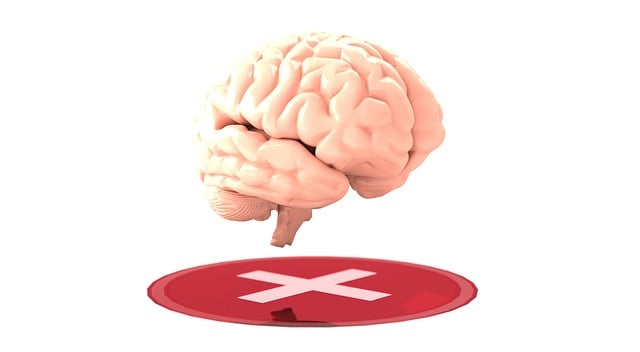TL;DR:
Coping skills development is crucial for young minds' mental health, with bilingual therapy emerging as a powerful tool. This approach teaches children emotional management and cognitive enhancement through engaging programs that include social skills training and stress management techniques. By integrating both languages in therapeutic settings, therapists create safe spaces where kids express emotions and learn effective strategies, boosting self-confidence and cultural identity. Parenting plays a vital role, with open conversations about feelings and emotionally intelligent environments fostering resilience. Bilingual mental wellness coaching programs enhance emotional intelligence through culturally relevant coping strategies like mindfulness and creative activities. Early teaching of these skills helps children manage stress and anxiety, whether through deep breathing in school, physical activities, or expressing themselves in their native language. Open communication with trusted adults acts as a safety net.
“Unraveling the journey towards resilient young minds, this article delves into crucial aspects of coping skills development. We explore how Understanding Coping Skills equips children to navigate life’s challenges. With a focus on bilingual therapy as a game-changer, we uncover its role in enhancing coping mechanisms for young children. Additionally, discover practical strategies parents and caregivers can employ to foster resilience. From school pressures to emotional regulation, learn effective coping skills tailored for kids in various situations.”
- Understanding Coping Skills Development in Young Children
- The Role of Bilingual Therapy in Enhancing Coping Mechanisms
- Strategies for Parents and Caregivers to Foster Resilient Young Minds
- Practical Examples of Coping Skills for Kids in Different Situations
Understanding Coping Skills Development in Young Children

Coping skills development is a crucial aspect of nurturing young minds, especially when it comes to their mental health and well-being. For children, understanding and managing emotions is an essential skill that can be cultivated through various therapeutic interventions. Bilingual therapy for young children has proven to be particularly effective in teaching these coping mechanisms, as it not only addresses the child’s emotional needs but also enhances their cognitive abilities.
The process involves designing mental health education programs that are engaging and age-appropriate. These programs often incorporate social skills training, encouraging children to express themselves and interact with peers effectively. Additionally, stress management techniques can be introduced to help young individuals cope with daily challenges. By implementing these strategies, parents and caregivers can foster a sense of resilience in children, enabling them to navigate life’s ups and downs with greater ease.
The Role of Bilingual Therapy in Enhancing Coping Mechanisms

Bilingual therapy plays a significant role in enhancing coping mechanisms for young children, particularly those from multilingual backgrounds. By incorporating both languages in therapeutic practices, therapists can create a safe and supportive space that allows children to express their emotions and develop effective strategies to navigate stress and challenges. This dual-language approach not only promotes cultural identity and familial connections but also boosts confidence and self-esteem.
Through engaging in bilingual therapy, young children learn to integrate Self-Care Practices and cultivate mindfulness through various activities tailored to their age and linguistic abilities. Mindfulness Meditation, for instance, can be adapted to include stories or songs in both languages, making it an enjoyable experience that encourages present-moment awareness and emotional regulation. This holistic approach ensures that coping skills development is not only culturally sensitive but also fun and engaging for the young participants.
Strategies for Parents and Caregivers to Foster Resilient Young Minds

Parenting and caring for young minds is a rewarding yet challenging task, especially when it comes to fostering resilience in children. Building emotional intelligence and positive thinking skills at an early age can significantly contribute to their overall mental wellness. One effective strategy for parents is to create a safe and supportive environment where open conversations about feelings and emotions are encouraged. This can be achieved through active listening and validation of their emotions, helping them understand and manage their internal experiences.
Incorporating therapy for young children in a bilingual setting can also be beneficial. Bilingual mental wellness coaching programs specifically tailored for this age group can enhance emotional intelligence by teaching coping strategies aligned with their cultural background. These programs often include activities that promote positive thinking, such as mindfulness exercises or creative outlets, which can empower young individuals to navigate life’s challenges and build resilience from a young age.
Practical Examples of Coping Skills for Kids in Different Situations

Kids face various challenges that can trigger stress and anxiety. Teaching them effective coping skills early on is invaluable. For instance, in school settings, a child experiencing exam pressure can employ conflict resolution techniques like deep breathing exercises or positive self-talk to manage their nerves. Visualizing success and breaking down complex tasks into manageable steps are also powerful tools.
When dealing with emotional distress, engaging in physical activities such as sports or art therapy releases endorphins, providing natural anxiety relief. Bilingual children might find solace in expressing themselves through writing or drawing in their native language, fostering a sense of cultural connection and comfort. Moreover, encouraging open communication with trusted adults acts as a powerful safety net, preventing burnout by offering support during difficult times, and promoting healthy coping strategies tailored to individual needs.
Coping skills development is a vital aspect of nurturing resilient young minds. By understanding the unique challenges faced by children, especially those from bilingual backgrounds, we can implement effective strategies through therapy and parenting techniques. This holistic approach empowers kids to navigate life’s stressors with adaptability and confidence. Through practical examples and tailored interventions, we can foster strong coping mechanisms, ensuring children thrive in a dynamic world. Bilingual therapy serves as a powerful tool, enhancing their emotional intelligence and overall well-being.











